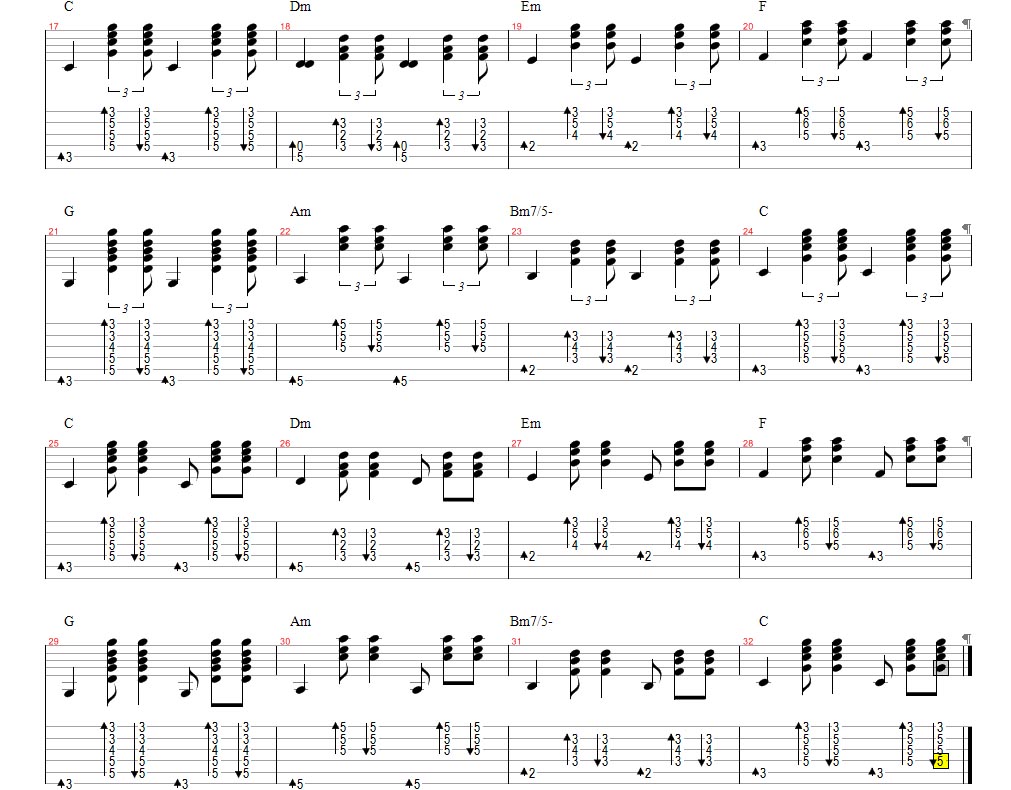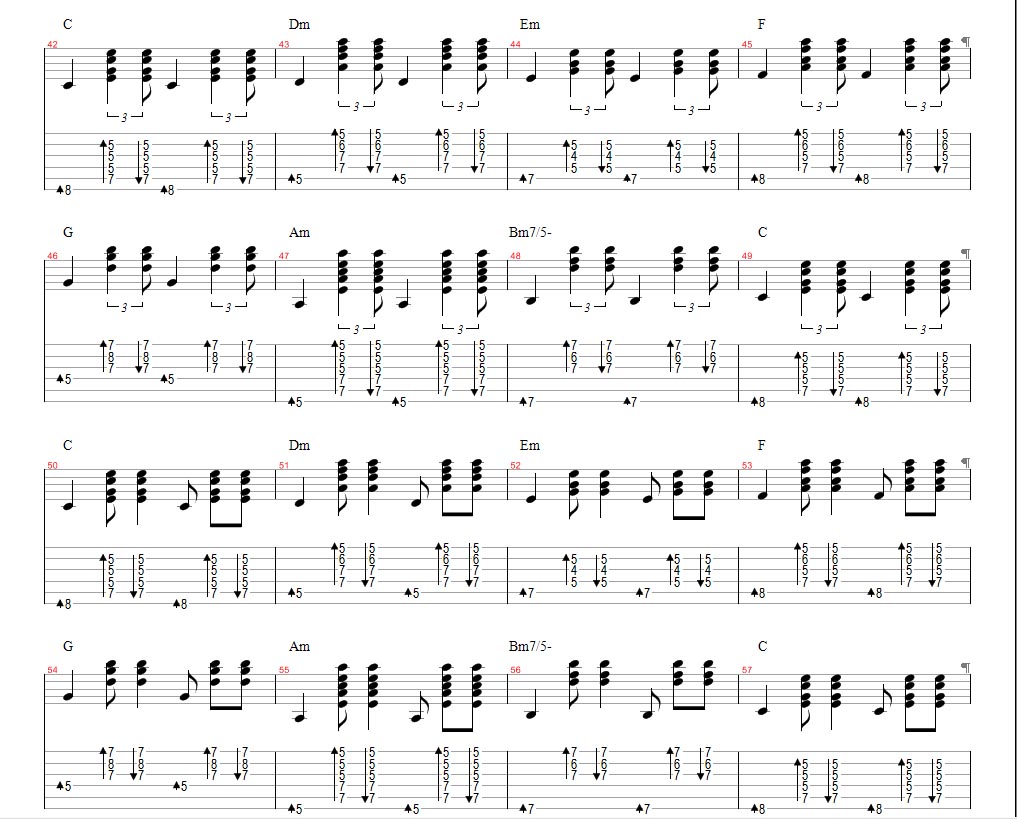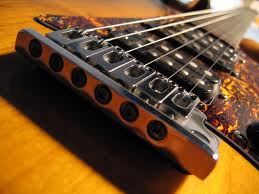Printable Version of Topic
Click here to view this topic in its original format
GMC Forum _ Ivan Milenkovic _ Ivan's Chord Sessions:
Posted by: Ivan Milenkovic Jan 16 2012, 11:10 PM
Chord Sessions - Assignment 2 (Monday 16.01. - Monday 23.01)
In this session we will:
1. Cover two more positions of the C major scale
2. Cover small theory article about third intervals, which are important with chords
As you know, chords are made by stacking two third intervals on top of each other. There are two kinds of third intervals: major and minor. Depending on how you stack these thirds, you will get a different chord:
root + major third + minor third = major chord triad
root + minor third + major third = minor chord triad
If you observe the scale bellow with intervals between the notes, you can see in between which notes there are minor and which there are major thirds. This is why some chords within major key are minor, and some are major.
C - D - E = F - G - A - B = C ("-" means whole step interval, and "=" means half step interval)
Chords of the C major key:
C major triad: C E G
D minor triad: D F A
E minor triad: E G B
F major triad: F A C
G major triad: G B D
A minor triad: A C E
B m7b5 triad: B D F
-----------------
Here are two positions for this assignment:
(Exercises 1 & 2)
http://www.guitarmasterclass.net/scalegenerator
(Exercises 3 & 4)
http://www.guitarmasterclass.net/scalegenerator
- Check out the guitar pro file, and tabs bellow for assignment 2 exercises (ex. 1 & 2 for first position and ex. 3 & 4 for second position)
- Play/download backing tracks for play-along practicing (use free http://www.aimp2.us/aimpl.php if you want to speed up/slow down these tracks easily)
- Record these examples, so I can review them and give you feedback
- Before recording, keep couple of things in mind:
- make sure you always start to play the chord with the root note (as on tab) - it's good for connecting to a scale, and beneficial for ear training
- If you find some chord change difficult, try to calm down, and do it in slow motion (like in a movie) to take full control of your finger's movements, then increase speed gradually
- always isolate problematic parts and work on them first, on very slow tempos
- don't bother to chase speed! After you can do all the changes equally well on a certain tempo (no matter what tempo it is) then it's time to record!
Looking forward in hearing your takes! ![]() Happy practicing!
Happy practicing! ![]()


 Backing_Track_Assignment_1___Exercise_1___50_bpm.mp3 ( 9.09MB )
: 242
Backing_Track_Assignment_1___Exercise_1___50_bpm.mp3 ( 9.09MB )
: 242 Backing_Track_Assignment_1___Exercise_1___100_bpm.mp3 ( 6.59MB )
: 153
Backing_Track_Assignment_1___Exercise_1___100_bpm.mp3 ( 6.59MB )
: 153 Assignment_2_tab.gp5 ( 9.37K )
: 143
Assignment_2_tab.gp5 ( 9.37K )
: 143Posted by: Gabriel Leopardi Jan 17 2012, 03:42 PM
Great stuff mate!! Excellent balance between theory and technique for beginners! This is very useful material. Well done. ![]()
Posted by: JPBluestring Jan 17 2012, 11:40 PM
This is a nice lesson. A little bit more than what catches the eye at first glance in assignment 2 at 120 BPM. I like it. Thanks Ivan
JPBluestring.

Posted by: Ivan Milenkovic Jan 18 2012, 10:59 AM
Thanks Gabe, trying to do my best you know.
JPBluestring.
Thanks mate, I hope you will like it. I've made a link there for AIMP player, it has great feature for slowing down tracks (without loosing pitch), and it's a great tool for practice. As always, it's important to go through all the changes equally well, and tempo is secondary thing. It can be a lot slower then that, as long as it's in time and with nice changes. This provides a good foundation, then you can go up the speed much quicker.
Posted by: Sean_1234 Jan 26 2012, 05:23 PM
Wow, serious stretching! I have a real hard time playing that Dm with the stretch to the fifth fret!
Posted by: Ivan Milenkovic Jan 29 2012, 03:17 PM
It sure is a big stretch, I'm having some difficulties with it myself ![]() Just take your time, and simplify it if it's really hard for you. It's important to finish the whole exercise, and in time, it will be a lot easier to add another finger, once you get all others in place.
Just take your time, and simplify it if it's really hard for you. It's important to finish the whole exercise, and in time, it will be a lot easier to add another finger, once you get all others in place.
Powered by Invision Power Board (http://www.invisionboard.com)
© Invision Power Services (http://www.invisionpower.com)
